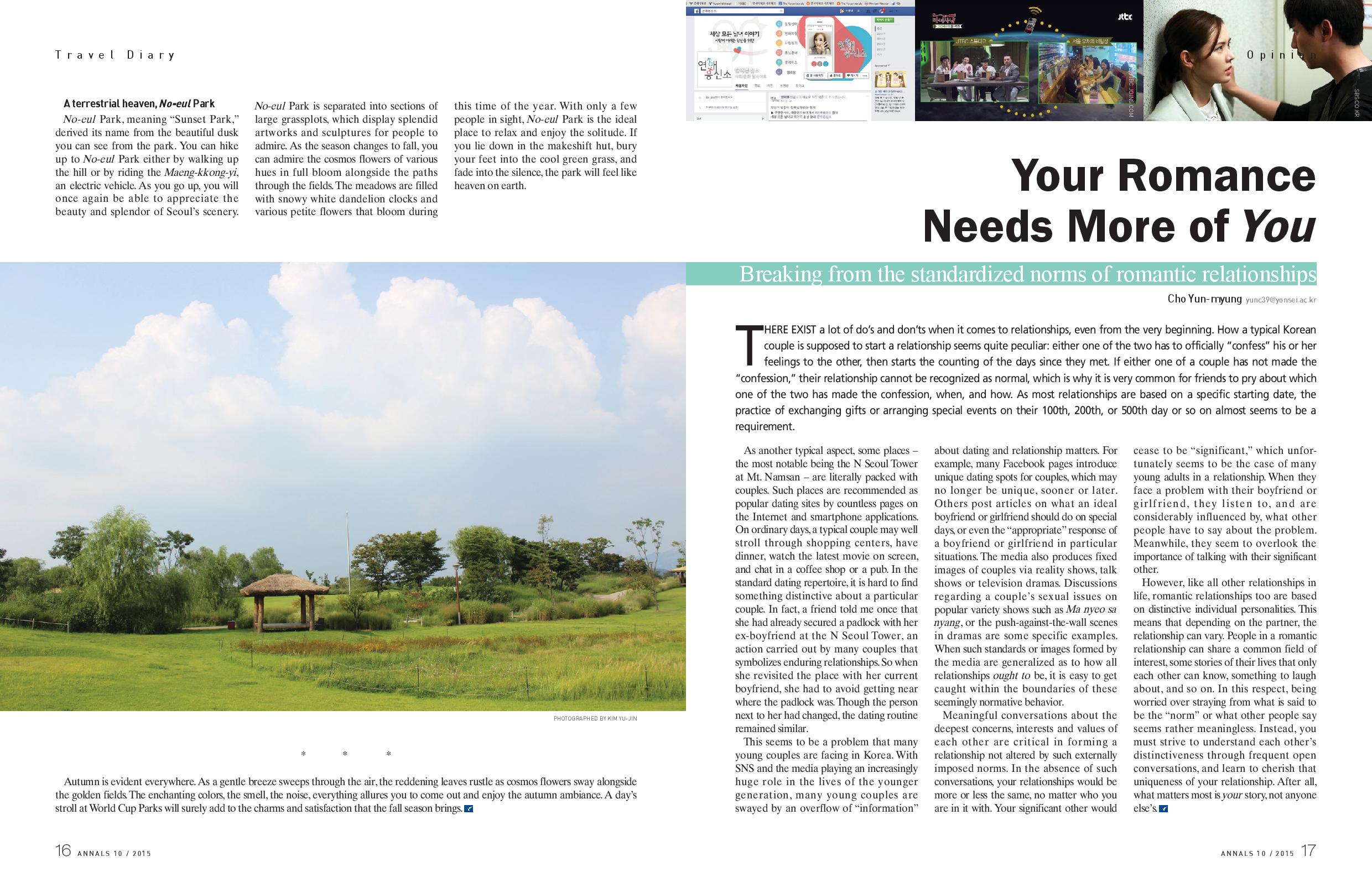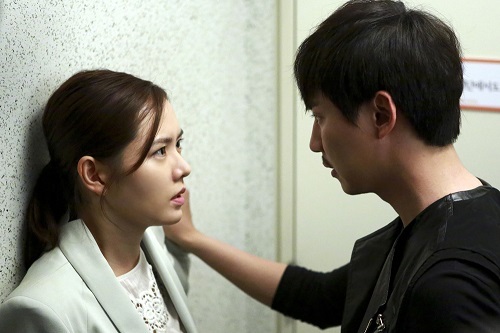Breaking from the standardized norms of romantic relationships


THERE EXIST a lot of do’s and don’ts when it comes to relationships, even from the very beginning. How a typical Korean couple is supposed to start a relationship seems quite peculiar: either one of the two has to officially “confess” his or her feelings to the other, then starts the counting of the days since they met. If either one of a couple has not made the “confession,” their relationship cannot be recognized as normal, which is why it is very common for friends to pry about which one of the two has made the confession, when, and how. As most relationships are based on a specific starting date, the practice of exchanging gifts or arranging special events on their 100th, 200th, or 500th day or so on almost seems to be a requirement.
As another typical aspect, some places – the most notable being the N Seoul Tower at Mt. Namsan – are literally packed with couples. Such places are recommended as popular dating sites by countless pages on the Internet and smartphone applications. On ordinary days, a typical couple may well stroll through shopping centers, have dinner, watch the latest movie on screen, and chat in a coffee shop or a pub. In the standard dating repertoire, it is hard to find something distinctive about a particular couple. In fact, a friend told me once that she had already secured a padlock with her ex-boyfriend at the N Seoul Tower, an action carried out by many couples that symbolizes enduring relationships. So when she revisited the place with her current boyfriend, she had to avoid getting near where the padlock was. Though the person next to her had changed, the dating routine remained similar.
This seems to be a problem that many young couples are facing in Korea. With SNS and the media playing an increasingly huge role in the lives of the younger generation, many young couples are swayed by an overflow of “information” about dating and relationship matters. For example, many Facebook pages introduce unique dating spots for couples, which may no longer be unique, sooner or later. Others post articles on what an ideal boyfriend or girlfriend should do on special days, or even the “appropriate” response of a boyfriend or girlfriend in particular situations. The media also produces fixed images of couples via reality shows, talk shows or television dramas. Discussions regarding a couple’s sexual issues on popular variety shows such as Ma nyeo sa nyang, or the push-against-the-wall scenes in dramas are some specific examples. When such standards or images formed by the media are generalized as to how all relationships ought to be, it is easy to get caught within the boundaries of these seemingly normative behavior.
Meaningful conversations about the deepest concerns, interests and values of each other are critical in forming a relationship not altered by such externally imposed norms. In the absence of such conversations, your relationships would be more or less the same, no matter who you are in it with. Your significant other would cease to be “significant,” which unfortunately seems to be the case of many young adults in a relationship. When they face a problem with their boyfriend or girlfriend, they listen to, and are considerably influenced by, what other people have to say about the problem. Meanwhile, they seem to overlook the importance of talking with their significant other.
However, like all other relationships in life, romantic relationships too are based on distinctive individual personalities. This means that depending on the partner, the relationship can vary. People in a romantic relationship can share a common field of interest, some stories of their lives that only each other can know, something to laugh about, and so on. In this respect, being worried over straying from what is said to be the “norm” or what other people say seems rather meaningless. Instead, you must strive to understand each other’s distinctiveness through frequent open conversations, and learn to cherish that uniqueness of your relationship. After all, what matters most is your story, not anyone else's.
Cho Yun-myung
yunc39@yonsei.ac.kr

